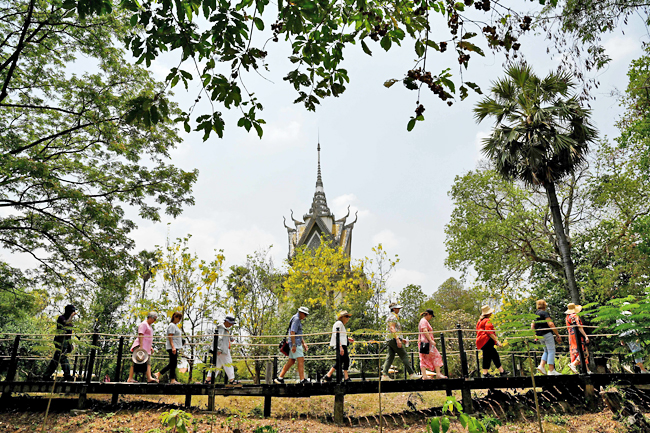PHNOM PENH (AFP) – Survivors of the Khmer Rouge’s genocidal regime welcome a beefed-up Cambodian law that forbids denying the movement’s atrocities, but rights advocates and academics warn it could also stifle legitimate dissent.
Enacted last month ahead of this week’s 50th anniversary of the Khmer Rouge seizing the capital Phnom Penh, the law threatens hefty jail sentences and fines for anyone who denies the genocide that killed around two million people between 1975 and 1979.
The atrocities committed by the Khmer Rouge are widely accepted by Cambodians save a dwindling group of ageing former cadres and soldiers who live mostly in the remote northwest.
The group led by ‘Brother Number One’ Pol Pot reset the calendar to ‘Year Zero’ on April 17, 1975 and emptied cities in a bid to create a pure agrarian society free of class, politics or capital.
About a quarter of the population died – of disease, starvation, overwork or by execution – in the disastrous social engineering experiment memorably chronicled by the 1984 Oscar-winning movie The Killing Fields.
Some activists, however, said former prime minister Hun Sen is using the law to burnish his legacy and stifle any opposition to his son and successor, Hun Manet.
The government is trying to “reinforce state narratives rather than to genuinely encourage historical accountability”, said associate professor at Arizona State University Sophal Ear.
“In practice, it could be another tool to silence dissent,” he said.
Political analyst Ou Virak called the law a “mistake”, adding, “A population that is afraid to discuss will be even more afraid to ask questions.”
Now 72, Hun Sen was a commander under Pol Pot before he fled to Vietnam in 1977, joining other Cambodian defectors to lead the Vietnamese army’s assault that drove the Khmer Rouge out of Phnom Penh.
In the more than 30 years Hun Sen ruled Cambodia he stifled dissent, critics said, equating opposition to his leadership as support for those he replaced.
“Hun Sen wants to impose his vision of things, saying: ‘I am the peacemaker’,” said Adriana Escobar Rodriguez of the French National Centre for Scientific Research.
One form of genocide denial tended to downplay Vietnam’s role in ousting the Khmer Rouge, she said, but another stemmed from the fact that some “people still can’t believe that Khmers could have killed other Khmers” – referring to Cambodia’s majority ethnic group.



